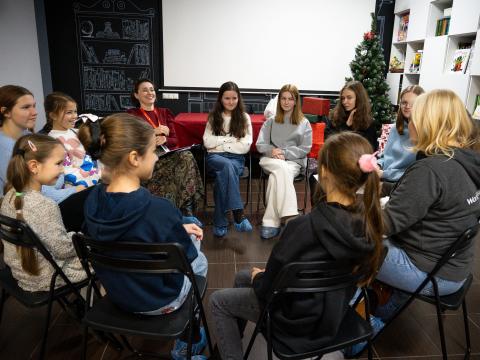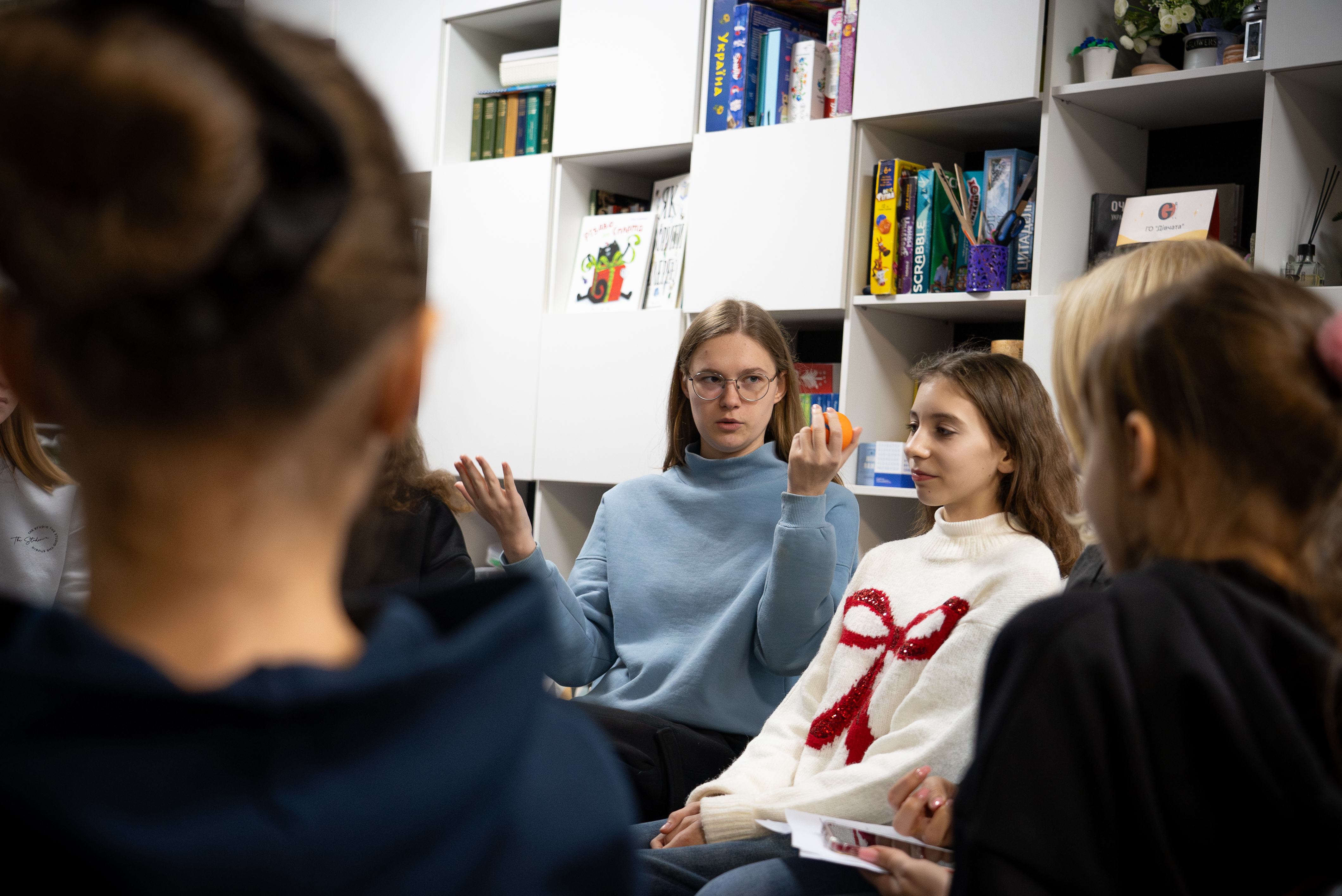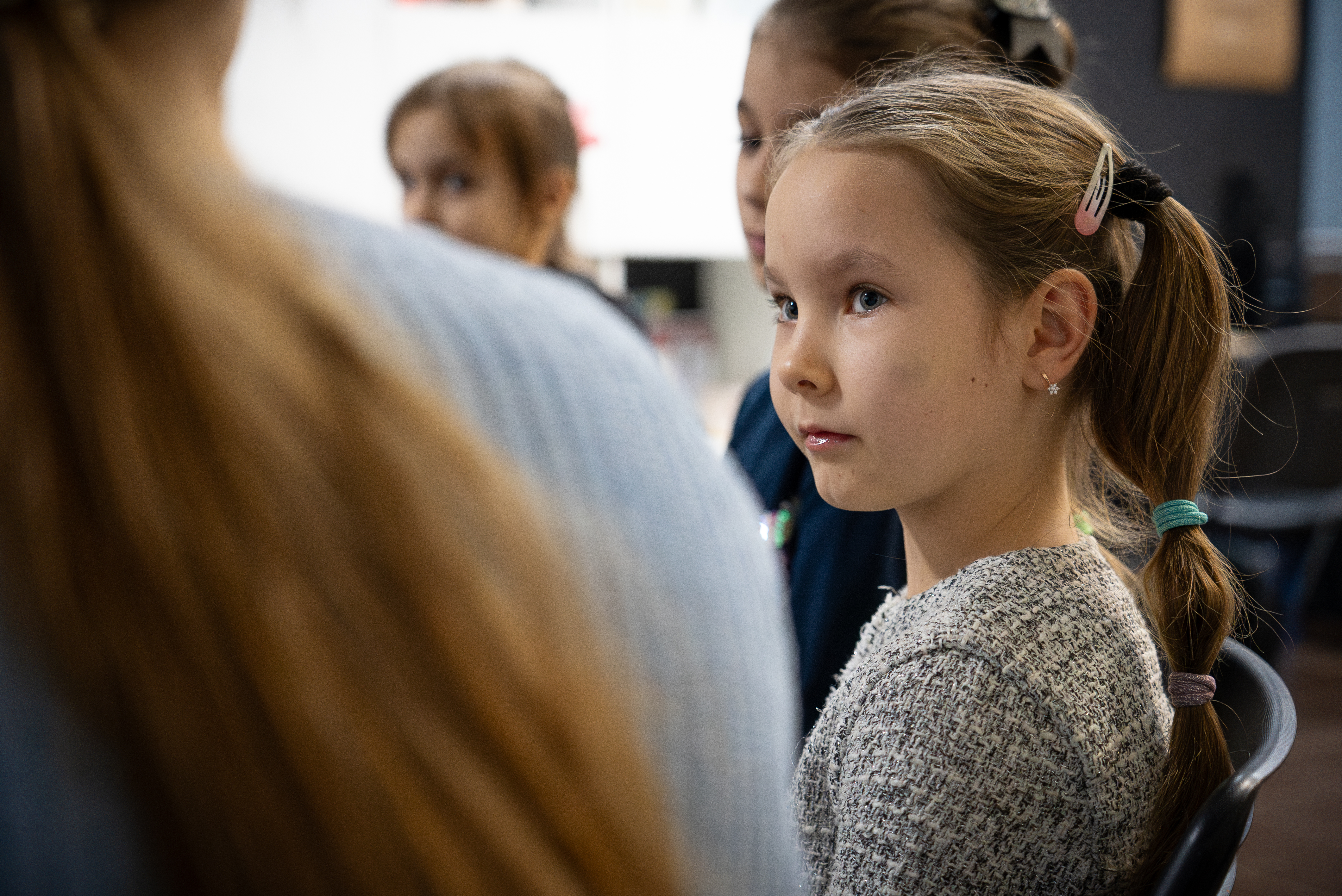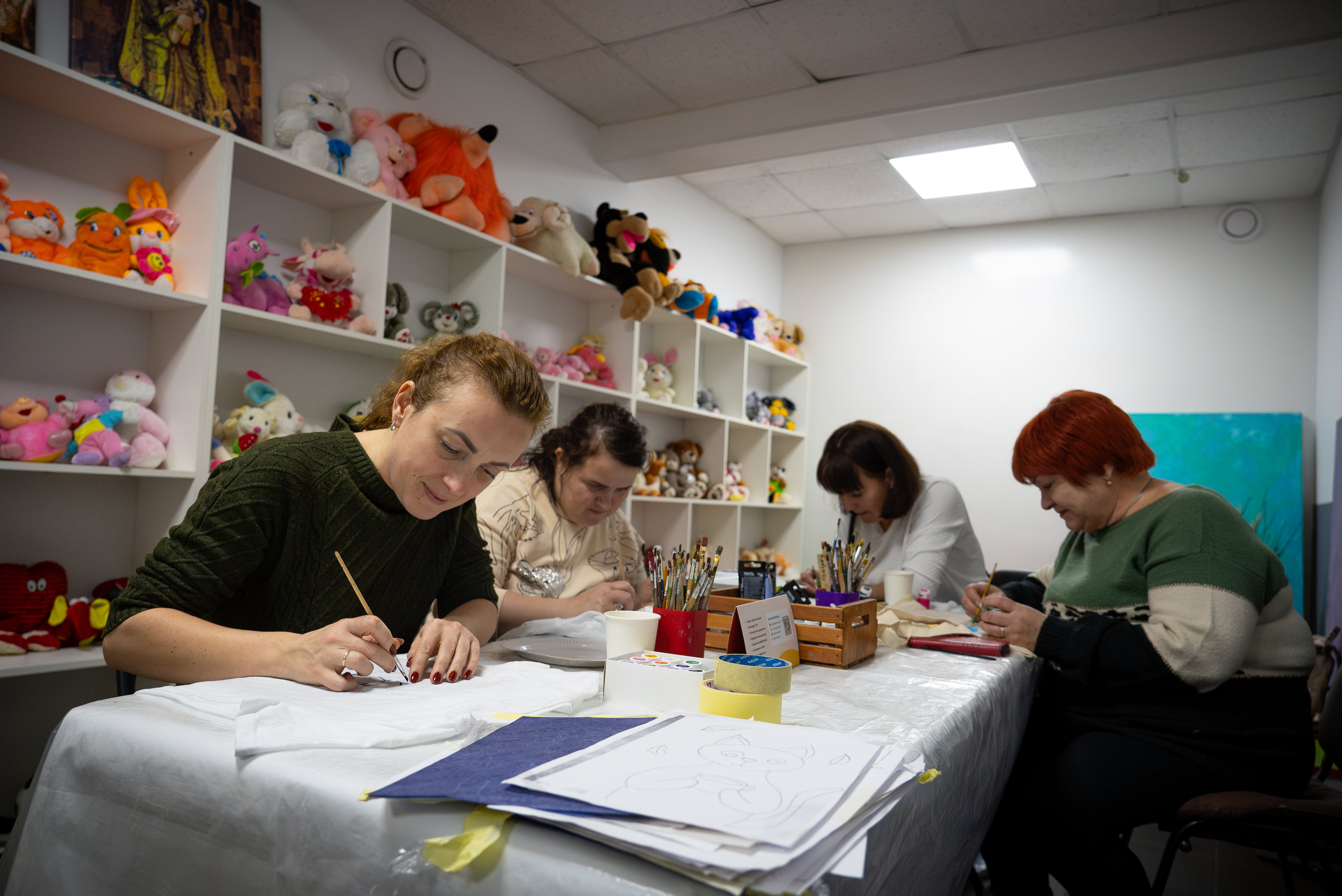World Vision provides Ukrainian children with safe spaces to overcome effects of war

Bila Tserkva, Ukraine - Two dozen children make their way through a cold dark winter evening to a small building in the center of Bila Tserkva, a city of 200 thousand about an hour’s drive from Kyiv, Ukraine. Upon entering the room, brightly lit and decorated, covered in Christmas lights at this time of year, children seem to immediately forget about the parents who just brought them here. The first thing they do as they enter is run to say their hellos and give their hugs to other kids and the adults in the room. Within minutes, the room is filled with chatter, laughter and children’s faces, still blushing from the cold outside. A tightly knit little community.
Victoria, 16: "I have been internally displaced my entire life. First, we left Donetsk and moved to Bakhmut [in 2014] when I was only five. And then had to leave Bakhmut [in 2022]. The city was destroyed, turned into rubble. That was such a painful feeling."
This child-friendly space operated by World Vision’s local partner NGO “Girls” serves the locals and the internally-displaced families in Bila Tserkva – thousands relocated to this city in the suburbs of Kyiv since the war began. Victoria, now 16, has been attending for more than two years: “When I just moved here, it was really tough”, she thinks back to 2022. “New city, no friends. Thing is, I have been internally displaced my entire life. First, we left Donetsk and moved to Bakhmut [in 2014] when I was only five. And then had to leave Bakhmut [in 2022]. The city was destroyed, turned into rubble. That was such a painful feeling.” Victoria says the center helped her not only find friends and her place in the new city but also process this life-long trauma: “It is not something you can talk thought at home with parents. We have lived in the same setting and share this experience. However, talking to outsiders who have been through the same helps realize that you are not alone and gives you a sense of solace.”

Anastasia, one of the social workers here, adds: “Most internally displaced children are more traumatized of course, but now all Ukrainian children are. We give them equal attention, and it’s a joy working with all of them”.

In the meantime, her colleague Svitlana conducts an art class for adults in the next room. A group of women sitting around the table with brushes and paints, mostly silent and fully immersed in their painting. One of them, Iryna, a local resident, attends the center together with her daughter. “Life in Ukraine is extremely stressful now. My husband works as the Emergency Service first responder in Kyiv, I have plenty to worry about. We need this distraction, this time we can spend on ourselves.” For her daughter it is more than just a distraction, though, but a way to process the reality of living in a war and develop empathy: “She has a chance to talk to and learn about the experiences of children who fled the war. She’ll come home and share their stories with me: “Can you believe what these kids have been through?” I see her learning to show support and compassion.”

Among those who had to flee were the children of Tetyana from Kherson: “They did not want to see or talk to anyone when we first moved here. They were completely shutting down. At the center they started talking to other children, and that is what’s most important for me.” As she speaks, Tetyana is painting a cat on a pair of children’s jean shorts: “My daughter is crazy about cats. We don’t have one, we can’t in our rented apartment. We did in Kherson, but our children had to leave everything behind – their friends, their grandparents, and their pets. So now we have a bag of cat food at home, and she will feed every single stray she comes across.”

Art, science and language classes, summer camps and film screenings, individual and group therapy are all important and beneficial for the children. Even more so – the little community they built in this house in Bila Tserkva. “The best feeling is when they open up”, says Anastasia, the social worker. “A child just grabs your hand and starts telling you about their day at school. And even though I have no idea who that Andryi or Mykyta is, the kids he’s talking about, but it makes me happy to just be there and listen.”

The Continued Service of Child Friendly Spaces project was funded by World Vision Hong Kong through World Vision Ukraine Crisis Response and implemented by NGO Girls in Kyivska and Dnipropetrovska oblast, Ukraine, in 2024.
Story and photos by Oleksandr Shpygunov, Communications Officer, World Vision Ukraine Crisis Response